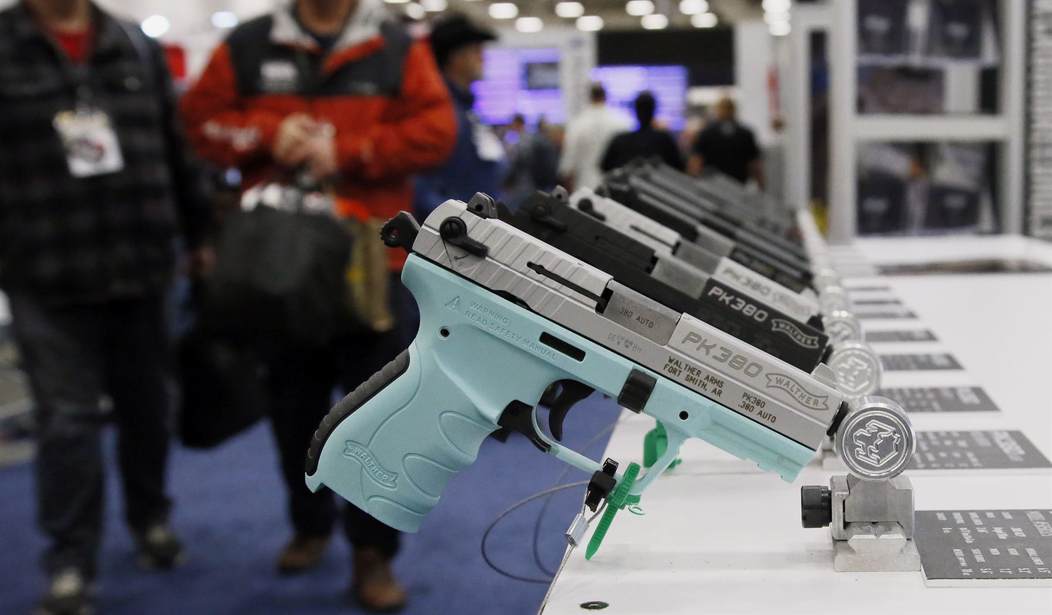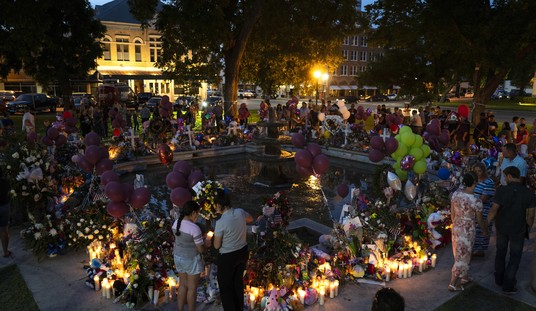With hopes for swift passage of gun control legislation in the Senate dwindling, many activists have reached the bargaining phase of their efforts to impose new restrictions on the right to keep and bear arms. Former Obama administration official Rahm Emanuel says that Democrats should “compromise” by focusing on mental health in addition to enacting new gun laws (which is a non-starter for several reasons, as my colleague Tom Knighton points out), while op-ed pages are full of suggestions on ways for gun owners and gun control activists to come together.
At The Hill, for instance, gun owner, gun control supporter, and ghost writer Michael Levin weighed in with his attempt at a compromise, though I’m not sure that there are a lot of folks on either side of the debate who’d agree with his proposals.
First, close the gun show loophole. It makes no sense that there are really two ways to buy guns — one through a reputable, licensed dealer with an appropriate background check, and the other, where anyone can walk in off the street and buy a gun at a gun show.
If legislation were passed to close the gun show loophole, requiring an adequate background check for all firearms purchases, a surprisingly large percentage of gun owners would be on board.
Oh, I think Levin would be surprised at the lack of support. After all, when universal background check referendums went before voters in Maine and Nevada in 2016, neither proposal received more than 51% support from the general public, much less gun owners. There’s simply no way to enforce a background check on private transfers proactively, and even trying to enforce such a requirement after the fact would require a gun registry, which is another non-starter for many gun owners.
Next, create a second round of licensing rules for anyone seeking to own an assault-style weapon. Banning assault-style weapons altogether has two problems: First, most legislators, who have no experience with guns, fail to realize that a forbidden weapon could be turned into a working assault-style weapon in less than an hour at a work bench. Outlawing assault-style weapons is simply impractical. Second, there is also a Constitutional question as to whether the Second Amendment can be interpreted to forbid the possession of such weapons. To put it simply, it’s unsettled law. Yet most gun owners would approve of a second, tighter form of background check for individuals who wish to own such weapons.
I honestly have no idea what Levin is talking about when he says that you can turn a forbidden weapon into an “assault-style weapon in less than an hour.” Maybe that’s because “assault-style weapon” is an absolutely meaningless phrase that’s generally used as a substitute for “gun I want to ban.”
I also don’t understand the point of “tighter” background checks for the purchase of a semi-automatic rifle, which I assume is what Levin is talking about. What would Levin include in these background checks that aren’t already a part of the existing NICS check performed by the FBI on commercial firearm transactions, and why does he believe that most gun owners would support them if he can’t even articulate what those additional measures would be?
The third area of potential harmony between gun owners and those who favor gun control is the idea that if a person appears to be suicidal or homicidal, that person should not have a gun.
Therapists are already obligated to tell law enforcement officials if patients are planning to kill themselves or others. If a therapist, or quite frankly anyone, has the sense that a gun owner they know is despondent or planning something horrific, there ought to be a law that permits the police to come and have a conversation with that person.
Automatic confiscation would not be acceptable to the gun owning community, but an approach that permits peace officers to have conversations with those who may have become unstable for whatever reason would be something that many gun owners would find acceptable.
I hate to break it to Levin, but law enforcement already possesses the power to have a conversation with someone that a therapist or mental health professional believes could be a danger to themselves or others. In fact, generally it’s the other way around. Under the civil commitment laws on the books in all 50 states, it’s law enforcement that takes the individual in question to be examined by mental health professionals, who generally have 72 hours to spend with the person to get a sense of whether or not they’re dangerous.
Honestly, though, if someone is truly a danger, then why would we just want to take their guns away and leave them to their own devices? It sounds like Levin is trying to describe a “red flag” firearm seizure law without actually using the words, but the trouble with those laws (beyond the due process concerns) is that they don’t actually address the dangerous person; instead focusing on one particular item that they might own.
So, no, I’m not on board with any of Levin’s “compromises,” because they’re just as ineffective at addressing violent crime as the slightly more invasive gun control measures proposed by gun control groups and anti-gun politicians. In fact, I can’t help but notice that none of Levin’s suggestions on compromising involve any compromises on the part of gun control activists whatsoever. He’s just asking gun owners to give up a little bit of their rights and asking gun control activists to not demand more.
I don’t see any room for compromise on the issue of gun control, because I think the basic idea of trying to impose restrictions on the supply of firearms is not only unconstitutional, but completely unworkable in a nation where more than 400-million of them are already in the hands of people who (generally speaking) have no desire or intention to get rid of them.
A truly reasonable and common sense approach would involve collaboration, not compromise. Forget trying to ban or arrest our way to safety. Let’s work on improving access to mental health treatments, targeted deterrence efforts designed to focus on the most violent offenders, and encouraging responsible gun ownership through increased education and training efforts in places where elected officials have spent decades simply trying to make gun ownership taboo.
Attempts to control people or their firearms aren’t going to work to make the country a safer place. Working together to address the underlying issues driving violence (including suicides), on the other hand, seems to me like the most likely way for a divided America to find some common ground.










